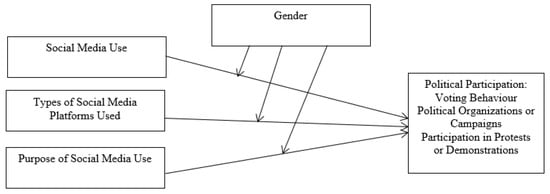
# Six Widespread Economic Fallacies That Politicians Endorse
Economic matters play a pivotal role in political discourse and policy development. Nonetheless, the intricacies of economic frameworks often lead many politicians — either intentionally or unintentionally — to simplify, distort, or reinforce specific economic fallacies. These fallacies not only mask crucial truths but may also lead to ineffective or possibly detrimental policy choices. Below are six prevalent economic misconceptions that politicians tend to endorse, accompanied by clarifications and corrections.
## 1. **“Government Debt Works Like Household Debt”**
### The Fallacy:
A prevalent political refrain is the comparison that **government debt** mirrors household debt. “Just as families must tighten their belts during challenging times, so too must the government,” is often heard.
### The Truth:
While this analogy may appear logical, it is fundamentally **incorrect**. Unlike households, governments possess the ability to create and regulate their own currency (in nations with monetary sovereignty like the U.S., the U.K., and Japan), meaning they can **issue debt in their own currency and manage monetary policy**. Provided that a country’s debt is in the currency it controls, it will not “run out” of money to meet that debt. Moreover, government spending during a recession — through borrowing — can function as a countercyclical mechanism, bolstering the economy when private sector expenditure is constrained.
Keynesian economics highlights that **deficits during economic slumps** can stabilize economies. Reducing spending or increasing taxes in a recession generally worsens economic difficulties rather than alleviating them. In the long run, sustainable debt management isn’t about evading it at all costs but ensuring efficient government spending.
## 2. **“Tax Cuts Always Pay for Themselves”**
### The Fallacy:
Politicians often advance the notion that **tax reductions** will spur economic activity to such a degree that the resulting growth will create enough revenue to compensate for the initial loss.
### The Truth:
While tax reductions can lead to increases in consumption or investment, **not all tax cuts generate sufficient additional economic growth to completely make up for the loss in revenue** — particularly when benefits disproportionately favor the wealthy or corporations. The 2017 U.S. Tax Cuts and Jobs Act (TCJA), for instance, lowered corporate tax rates, yet empirical data show that the anticipated benefits, including increased investment and wage hikes, were considerably less than projected.
The economic theory frequently employed to validate this fallacy — **supply-side economics** (or “trickle-down economics”) — has largely been discredited. Indeed, numerous tax cuts lead to **reduced revenue**, enlarging the budget deficit and increasing inequality.
## 3. **“Minimum Wage Increases Destroy Jobs”**
### The Fallacy:
Politicians who oppose raising the **minimum wage** often argue that such increases will result in widespread job losses since businesses will struggle to manage higher labor costs, potentially pushing small firms into failure or leading major companies to cut jobs.
### The Truth:
While drastic minimum wage hikes could theoretically have adverse employment effects, **moderate increases usually do not have the catastrophic job loss impact that critics assert**. Numerous studies, including a 2021 report from the Congressional Budget Office, recognize that although there may be **some job losses**, these are often outweighed by the **income increases for low-wage workers**, resulting in net economic advantages.
Higher wages also boost disposable income in the economy, which can heighten demand for products and services, thereby offsetting any potential job losses by improving business profitability. The ethical and economic considerations surrounding minimum wage rises are much more complex than opponents typically suggest.
## 4. **“Trade Deficits Mean We’re Losing”**
### The Fallacy:
Many politicians portray **trade deficits** — situations when a country imports more than it exports — as evidence that a nation is “losing” in international trade, asserting that it leads to job losses and national economic deterioration.
### The Truth:
A trade deficit isn’t inherently “bad,” nor does it signify that a country is losing wealth or jobs. A **trade deficit** reflects disparities in national **savings and investment**. In countries like the United States, ongoing trade deficits may indicate robust consumer demand, a stable currency, and foreign investment, rather than economic frailty.
Moreover, nations with trade surpluses, such as Germany or China, are often **exporting substantial savings abroad**. While there are nuances related to specific industries and sectors, concentrating solely on the trade deficit overlooks other critical aspects of economic success, such as innovation, services, capital flows, and productivity.
## 5. **“Inflation is a Result of Excessive Government Spending”**
### The Fallacy:
When inflation escalates, politicians across the spectrum often attribute rising prices to **government spending** — contending that increased money supply leads to heightened demand for goods and services.